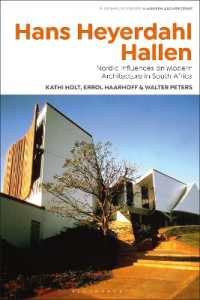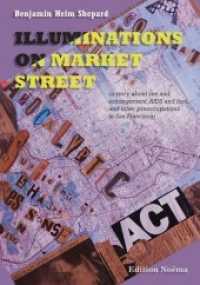- ホーム
- > 洋書
- > 英文書
- > Business / Economics
Full Description
Why do multinational mining corporations use participation to undermine resistance? Do the struggles of local communities, activists and NGOs matter on a global scale? Why are there so many different global standards in mining?
This book develops a new critical political economy approach to studying extractive accumulation, drawing on three detailed Indonesian cases to explain how participatory mechanisms continuously reshape and are reshaped by community-corporate conflict. Findings highlight feedback between local social relations, conflict, transnational activism, crises of legitimacy and global governance.
The author argues that corporate social responsibility, community development, 'gender-mainstreaming' and environmental monitoring are neither simple outcomes of corporate ethics nor mere greenwashing strategies. Rather, participation is a mechanism to undermine resistance and create social relations amenable to extractive accumulation.
Contents
Preface & acknowledgements
List of abbreviations
Introduction: mining and participation in global capitalism
1 Extractive accumulation and modes of participation
2 Global governance, crises and resistance in extractive accumulation
3 Contesting extractivism in Indonesia
4 Violence to participation in Rio Tinto's Kelian Mine
5 Participation, gold, and governance in Gosowong
6 Iron resistance in Coastal Kulon Progo
Conclusion







